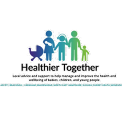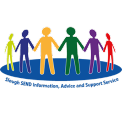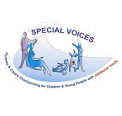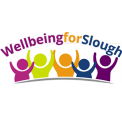Bullying

Bullying is when individuals or groups try to:
- harm
- frighten
- force
someone who is weak and helpless.
It can involve people of any age, and can happen at any time, at:
- home
- school
- online platforms and technologies (cyberbullying).
Types of bullying
There are different types of bullying and may include the following.
- Verbal abuse - name-calling. saying nasty things to or about a child or their family.
- Physical abuse - hitting or pushing a child, physical attack.
- Emotional abuse - making threats, discouraging a child, excluding a child from a friendship group or activities.
- Cyberbullying /online bullying such as:
- excluding a child from online games or activities or friendship groups
- sending threatening, upsetting or abusive messages
- creating and sharing embarrassing or nasty images or videos
- 'trolling' - sending frightening or upsetting messages on social networks, chat rooms or online games
- voting for or against someone in an abusive poll
- setting up hate sites or groups about a particular child
- creating fake accounts, hijacking or stealing online identities to embarrass a young person or cause trouble using their name.
The following types of bullying are also hate crime.
- Racial, sexual, belief, gender identity, transphobic or homophobic bullying.
- Bullying someone because they have a disability.
Effects of bullying
Children who are bullied:
- may develop mental health problems like depression and anxiety
- have fewer friends
- aren't accepted by their peers
- do not trust others
- have problems adjusting to school, and don't do as well.
All children who are affected by bullying can suffer harm – whether they are bullied, they bully others or they witness bullying.
Signs that a child is bullied
A child or young person who is bullied may:
- seem low or anxious
- seem less confident
- feel upset, teary or panicky
- be socially isolated
- avoid or refuse to go to school
- often complain of feeling physically unwell
- have outbursts of unexplained anger at home
- seem withdrawn, isolated and wary of others
- have few friendships
- make changes in their behaviour, for example dressing very differently or suddenly doing new activities to meet peer pressure
- act in a bullying way towards others
- have unexplained physical injuries such as bruises or scratches
- do less well at school
- eat and/or sleep more or less than usual
- use things like self-harm or drugs and alcohol to cope with difficult feelings
- have suicidal thoughts and feelings.
Under these behaviours, the child or young person may be frightened or anxious, lonely, isolated, feel worthless, on-edge or desperate about the situation they’re facing.
Why children bully others
Children may bully others because they:
- face peer pressure and/or want the approval of others.
- want to feel powerful over someone who they think is weak.
- are bullied themselves.
- are worried, unhappy or upset about something
- lack social skills or do not understanding how others feel.
Children who bully others may not understand that they are making life difficult for another child. It can be difficult for them to get the support they need to change their behaviour.
When posting online, children may not consider the effect their actions will have on others. Some children may be more likely to engage in bullying behaviour online as they can create anonymous accounts which may make them feel as if they can’t be 'found out'.
Why children are bullied
Any child can be bullied. Children who are seen by others as ‘different’ in some way may be targeted.
This might be because of their:
- physical appearance
- race
- faith or culture
- gender identity
- sexuality
- disability or additional needs.
Or it could be because they:
- appear anxious or have low self-esteem
- lack assertiveness
- are shy or quiet.
It may also be because of a child's family circumstances or home life, for example if they are adopted or in care.
Is bullying different for children with SEND
Some special educational needs and disabilities can increase a child's general vulnerability.
You may have concerns about bullying when your child has special educational needs or disabilities because:
- your child may not understand that the behaviour towards them is bullying
- communication barriers may make it difficult for your child to say they are being bullied
- social isolation due to the disability reduces your child’s support network
- your child is unable to defend himself/herself, either physically or verbally.
Check Contact For families with disabled children for advice on:
- how to speak to your child's school and
- what to do it if the school does not resolve the bullying.
What is hate crime
Hate incidents and hate crime are acts of violence or hostility directed at people because of who they are or who someone thinks they are.
Criminal behaviour towards people with SEND because they have a disability is a hate crime.
If you or your child has been the victim of a crime on the basis of their disability or perceived disability, you can report this to Thames Valley Police.
How to support your child
- Every education setting produces a SEN report. This report contains all of the information on the SEND support the setting offers. This includes support for wellbeing and social, emotional and mental health. Each individual school/college SEN report and setting policies will tell you how they respond to bullying. Check the SEN report on the setting’s website.
- Keep a record of incidents and show this to the member of staff/SENCO supporting your child.
- Talk to your child regularly about bullying, so if they do experience bullying, they will find it easier to tell you.
- Practice Promote Prevent's assertiveness activities with your child, to help them feel confident to respond appropriately to the bully.
- Encourage them to turn off their phone if they are experiencing cyber-bullying and/or monitor their activity whilst they are online
- Teach your child how to stay safe online. You can find advice from the Cybersmile Foundation's Help Centre.
If your child has been impacted emotionally by bullying, or they are struggling with their mental health, they may benefit from counselling. Speak to your school as they may have access to a school counsellor or be part of a Mental Health Schools team (MHST), GP for advice or go to Early Help in Slough and seek help from Getting Help.
Where to find support
The following services may be able to offer further advice and support.
- NSPCC provides guidance on talking to your children about bullying.
- National Bullying Helpline provides help with bullying, harassment, cyberbullying or other anti-social behaviour issues.
- Anti-Bullying Alliance offers information tools for parents and carers.
- Kidscape a charity which provides advice to young people and parents to tackle bullying.
- Bullies Out provides information, advice, guidance and training to parents and young people around dealing with bullying, including e-mentoring support.
- Kooth a free and confidential online counselling service for young people.
- Young Minds Parent Helpline a free and confidential helpline if you are worried about the emotional problems or behaviour of a child or young person.
- SAFE! provides support to children and families around the Thames Valley who have been affected by crime or abuse through one-to-one and group sessions.
- Victim Support provides help and guidance for young people experiencing bullying.





